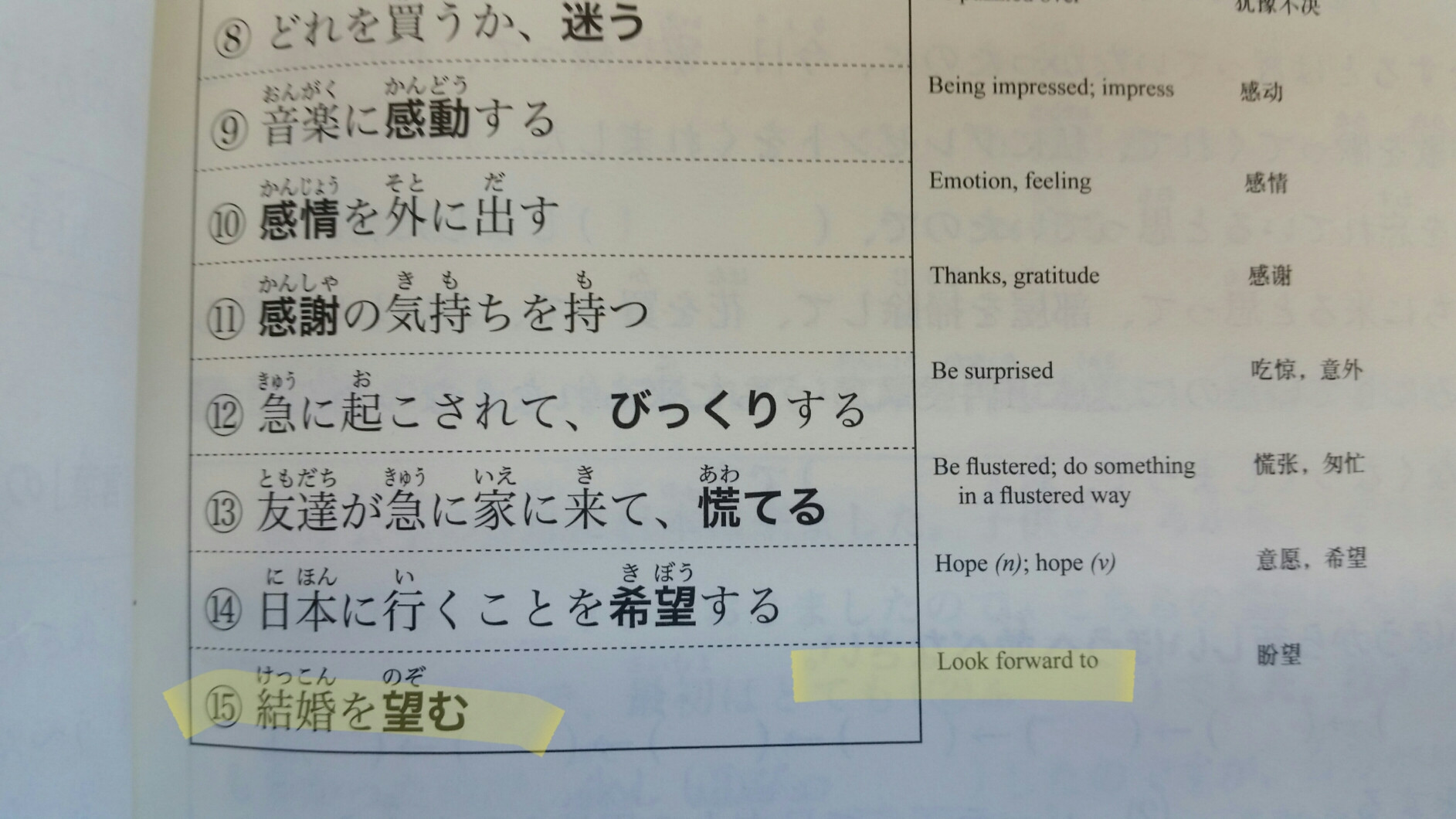My textbook says 〜を望む means "look forward to". I usually use 〜楽しみにしている for this purpose. What's the difference?

My textbook says 〜を望む means "look forward to". I usually use 〜楽しみにしている for this purpose. What's the difference?

Are you sure your textbook says "nozomu" means "look forward to"? Because
望む nozomu basically means "to hope for/to desire", NOT "to look forward to". As you thought, 楽しむ tanoshimu means "to enjoy/have fun". 楽しみにする means "to look forward to"
I am not sure why your textbook would make such a claim. I am tempted to say it's either a typo or some sort of misunderstanding.
thanks @Yuuichi Tam for pointing out an earlier error.
Thanks for including the photo of your textbook entry. It clears things up a lot. @Chocolate is right in his/her comment, the textbook's use of 望む there reads MUCH more like "hope to get married" or "really want to get married" . I have never seen this phrase before. It seems like an odd pairing.
Although, now that I think about it, a bride or groom might think it's strange to use 楽しみにしている for 結婚. It's an interesting question.
Searching for instances of 結婚を望む online, there are over 400,000 hits, but the phrase is used on those webpages (the few I checked) to talk about a strong desire to get married.